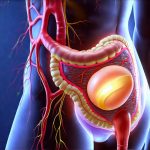Our bodies are complex systems where interconnected networks constantly communicate to maintain balance and function. While much attention is often given to the brain as the central command center, there’s a fascinating – and surprisingly independent – nervous system operating within our digestive tract. Often referred to as the “second brain,” this intricate network profoundly influences digestion, immunity, mood, and even mental health. Understanding its capabilities provides valuable insight into overall well-being.
The enteric nervous system (ENS) isn’t simply a support structure for the central nervous system; it’s capable of operating autonomously, making decisions and responding to stimuli without direct input from the brain or spinal cord. This unique feature sets it apart and highlights its crucial role in maintaining digestive health and beyond. Its influence is so significant that scientists are increasingly recognizing its importance in understanding a wide range of physiological processes.
The Scope & Structure of the ENS
The enteric nervous system is an expansive network of neurons, glial cells, and interneurons embedded within the walls of the gastrointestinal tract – extending from the esophagus to the rectum. It’s estimated to contain around 500 million neurons, more than some animals have in their entire nervous systems! This vast neural circuitry allows for independent control over digestion, absorption, and secretion.
This system isn’t a single entity but rather a complex collection of interconnected nerve plexuses – specifically the myenteric (Auerbach’s) plexus and the submucosal (Meissner’s) plexus. These plexuses coordinate a wide range of digestive functions and communicate with each other and, importantly, with the central nervous system via the vagus nerve.
The ENS & Gut-Brain Axis
The relationship between the gut and brain is bidirectional – meaning they constantly influence one another. This intricate connection, known as the gut-brain axis, involves neural pathways (like the vagus nerve), hormonal signals, immune responses, and even the microbiome within our digestive tract. The ENS plays a pivotal role in mediating this communication.
The ENS relays information about the state of the gut – including nutrient content, inflammation, and microbial activity – to the brain. Conversely, the brain can influence gut motility, secretion, and sensitivity through signals sent down via the vagus nerve. This constant interplay impacts not only digestive health but also mood, anxiety levels, and cognitive function.
How the ENS Controls Digestion
The primary role of the ENS is regulating gastrointestinal functions. It orchestrates peristalsis (the wave-like muscle contractions that move food through the digestive tract), regulates secretion of digestive enzymes and hormones, and controls blood flow to the gut. This complex process requires precise coordination between different parts of the digestive system.
The myenteric plexus primarily governs motility while the submucosal plexus manages secretions. Together they ensure efficient digestion and absorption of nutrients. The ENS also monitors the composition of chyme (partially digested food) and adjusts digestive processes accordingly, demonstrating a remarkable level of local control.
Immune Function & the ENS
A significant portion of our immune system resides in the gut, making the ENS an integral part of immune defense. The gut microbiome—the trillions of bacteria living in our intestines—interacts closely with the ENS to modulate immune responses. The ENS helps maintain a healthy balance within the microbiome and can detect harmful pathogens.
When inflammation occurs in the gut, the ENS communicates with the immune system, triggering appropriate responses. Dysregulation of this interaction can contribute to chronic inflammatory conditions like irritable bowel syndrome (IBS) or even autoimmune diseases, highlighting the ENS’s importance for overall immunological health.
The Microbiome’s Influence on ENS Function
The gut microbiome isn’t just a passive resident; it actively communicates with the ENS and profoundly influences its function. Microbes produce neurotransmitters – like serotonin and dopamine – that directly impact neuronal signaling within the ENS, influencing gut motility and sensation. Different microbial compositions can lead to varying levels of these neurotransmitters.
Furthermore, certain bacterial metabolites (byproducts of microbial metabolism) can affect ENS neurons directly, altering their activity and sensitivity. This complex interplay underscores why a healthy microbiome is crucial for optimal digestive function and overall well-being. Dietary choices and lifestyle factors significantly influence the composition of our gut microbiota, thus impacting the ENS through this pathway.
The study of the enteric nervous system is still evolving, but it’s clear that its complexity and importance cannot be overstated. As research continues, we’re gaining a deeper understanding of how this “second brain” contributes to both physical and mental health. Recognizing its role provides a broader perspective on overall wellness and emphasizes the interconnectedness of our bodily systems. Future investigations promise to reveal even more about its potential for therapeutic interventions related to digestive disorders, mood regulation, and beyond.


















